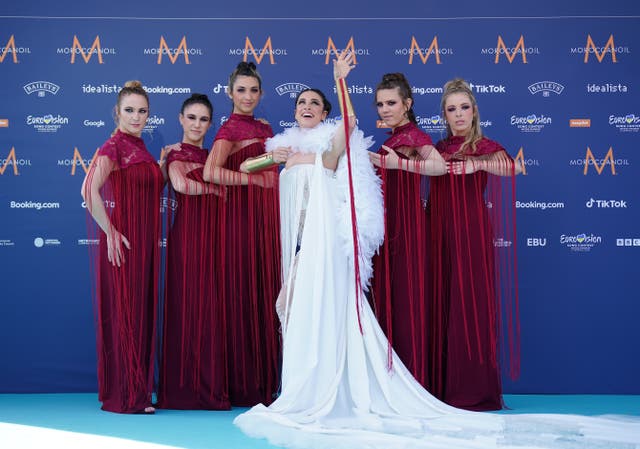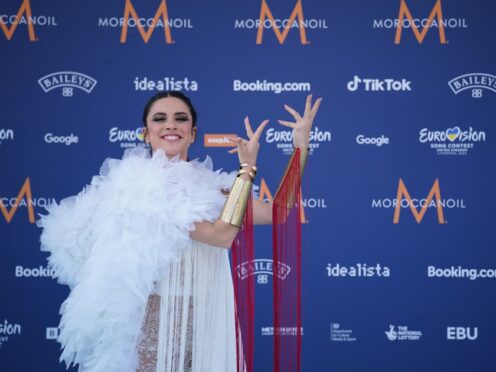Spain’s Eurovision act has described Liverpool’s welcome to the Ukrainian community as “like a hug from us to Ukraine”.
Blanca Paloma, 33, is representing her country at the contest with the song Eaea, which features flamenco handclaps, synths and a complex, soaring vocal melody.
Touted by the bookmakers as one of the favourites to win, Paloma gets a free pass to the grand final on Saturday because Spain is one of the so-called “big five” countries who, via their broadcasters, contribute the most money to the organisation of the contest.
The 67th Eurovision Song Contest is taking place in Liverpool this year after the UK was chosen to host on behalf of war-torn Ukraine, which won the last contest – marking the first time the competition has been held in the UK for 25 years.
Paloma told the PA news agency: “I think it is so necessary because this should be happening there and not here unfortunately. But the city is making Ukraine present – I feel it is like a hug from us to Ukraine.”
Paloma said she saw similarities between Liverpudlians and the people in her native Spain in that they are both “very warm and nice”.
The singer, from the city of Elche near Alicante, has also struck up a close friendship with the UK’s entrant, Mae Muller, who is competing with the track I Wrote A Song and also gets a free pass to the grand final.
Describing the 25-year-old as “my besty” and a “queen”, Paloma added: “I think actually Mae Muller is the colleague that I have met the most.

“We also have lunch together and we share much more than music. We have got the chance to really know each other, to know who we are.
“She is a wonderful person, full of energy, and I can’t wait to be with her on the grand final.”
Paloma’s song is partly inspired by her relationship with the women of her family and its artwork features a photo of her late grandmother, Carmen, who introduced her to flamenco.
“This song has universal ingredients not only to show how powerful women are but also to show our fragility,” she said.
“Because I think from vulnerability we learn how to be strong. So women around me, women that surround me, are like the ingredient for this Spanish omelette that we want Europe to try.”
The Eurovision semi-finals will be broadcast on BBC One on Tuesday May 9 and Thursday May 11, with the grand final taking place on Saturday May 13 from 8pm.
